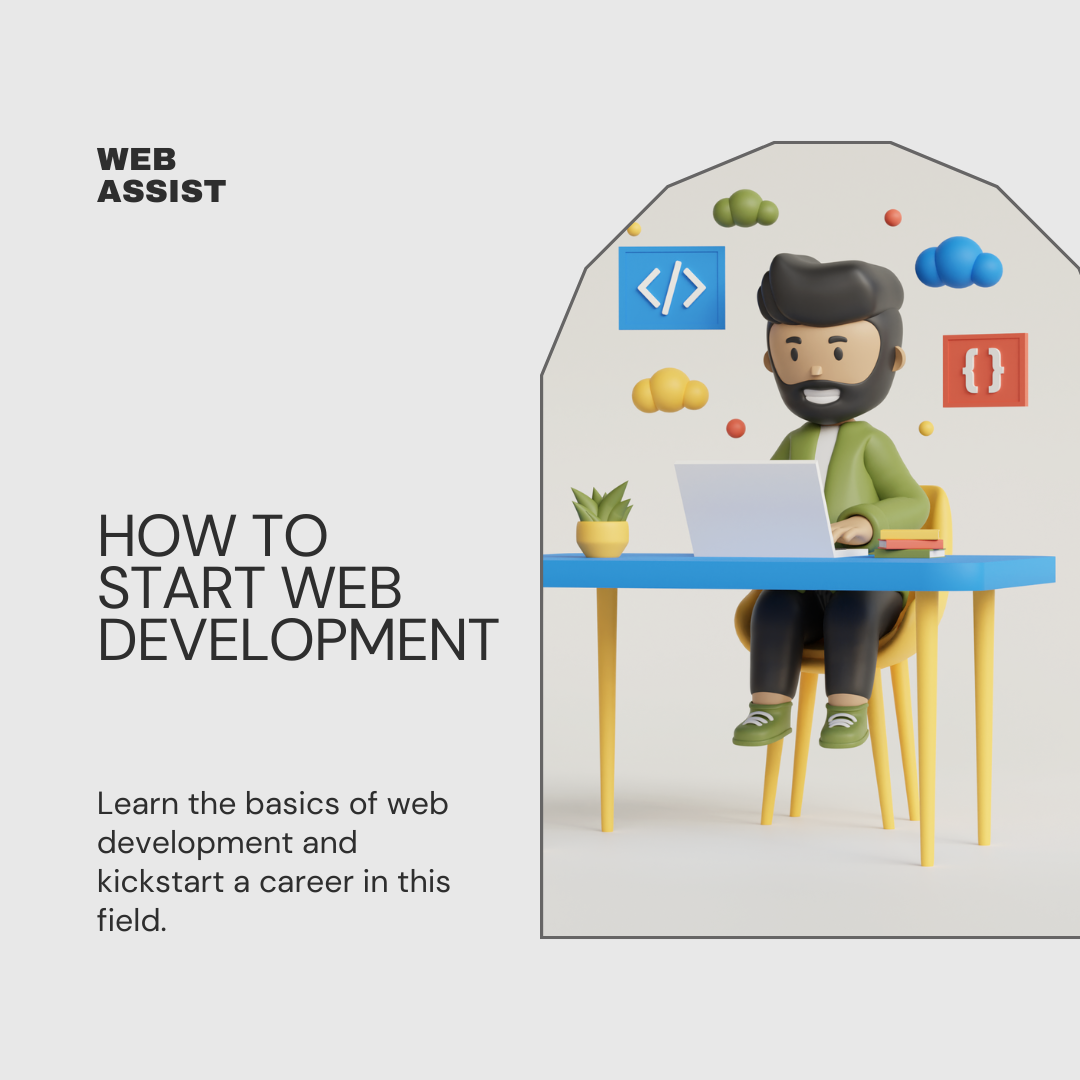Introduction to Web Development
Web development is a rapidly growing field that encompasses the creation and maintenance of websites and web applications. Whether you are a beginner or already have some coding experience, starting your journey in web development can be both exciting and challenging. In this article, we will explore the basics of web development, discuss why it is an excellent career choice, and provide practical tips on how to set realistic goals for your journey.
Understanding the Basics of Web Development
- What is Web Development?
Web development is the process of creating websites and applications for the internet. It involves various skills such as coding, designing, and maintaining websites to ensure their functionality and aesthetics. Web developers use different programming languages, frameworks, and tools to build websites that are interactive, responsive, and visually appealing.
- Essential Skills Required for Web Development
To excel in web development, you need to acquire a range of skills. Some of the essential skills include proficiency in HTML (Hypertext Markup Language), CSS (Cascading Style Sheets), and JavaScript. Understanding how databases work, knowledge of server-side programming languages like Node.js, and experience with version control systems like Git are also crucial for a comprehensive skill set in web development.
- Common Misconceptions about Web Development
There are several misconceptions surrounding web development. One common misconception is that you need a formal computer science degree to become a web developer. While a degree can be helpful, it is not a strict requirement. Many successful web developers are self-taught or have acquired their skills through coding bootcamps, online courses, and practical experience.
Why Choose Web Development as a Career?
There are several reasons why web development is an excellent career choice. Let’s explore a few of them:
Career Opportunities in Web Development
Web development offers a wide range of career opportunities. From working as a front-end developer responsible for creating user interfaces to becoming a back-end developer handling server-side programming, there are various paths you can pursue. Additionally, you can specialize in areas such as web design, e-commerce development, or mobile app development.
High Demand in the Job Market
Web development skills are in high demand, making it a promising field for career growth. Businesses across industries are recognizing the importance of establishing an online presence, which has increased the need for skilled web developers. As organizations continue to invest in their online platforms, job opportunities in web development are expected to grow.
Freedom and Flexibility in Web Development
Web development also offers freedom and flexibility in terms of work environment. Many web developers work remotely, giving them the flexibility to create their schedules and work from anywhere. This freedom allows developers to achieve a better work-life balance and tailor their work environment to suit their preferences.
Setting Realistic Goals for Your Web Development Journey
Before embarking on your web development journey, it is crucial to set realistic goals. By defining your objectives, using SMART goal-setting techniques, and tracking your progress, you can stay motivated and make progress efficiently.
Defining Your Objectives
Take the time to evaluate what you want to achieve in web development. Define your long-term and short-term goals, and be specific about what skills you want to acquire or projects you want to complete. This will help you stay focused and measure your progress effectively.
SMART Goal Setting for Web Development
Utilize the SMART goal-setting framework to set tangible and achievable goals. SMART stands for Specific, Measurable, Attainable, Relevant, and Time-bound. For example, instead of setting a goal to “learn HTML,” a SMART goal would be “build a personal website using HTML and CSS within the next three months.”
Tracking Your Progress
Regularly track your progress to stay motivated and ensure you are on the right track. Keep a record of the skills you have acquired, projects you have completed, and milestones you have achieved. This will not only help you see how far you’ve come but also identify areas where you might need additional focus.
Building a Foundation in Web Development
To start your web development journey, building a strong foundation is essential. Let’s explore the key aspects of building this foundation.
Understanding Web Technologies and Languages
- Introduction to HTML
HTML is the backbone of web development. It provides the structure and content of a webpage. Learning HTML will allow you to create headings, paragraphs, links, images, and other elements that make up a webpage.
- Exploring CSS Basics
CSS is responsible for the visual appearance of a webpage. It allows you to add colors, styles, and layouts to HTML elements. Understanding CSS will enable you to create visually appealing and responsive designs.
- Introduction to JavaScript
JavaScript is a programming language that adds interactivity and functionality to webpages. Learning JavaScript will allow you to create dynamic elements, handle user interactions, and build more interactive web applications.
Learning Web Development Frameworks and Libraries
- Importance of Frameworks in Web Development
Frameworks provide a structured approach to web development, making it more efficient and less time-consuming. They offer predefined templates, reusable components, and built-in functionalities that can significantly speed up the development process.
- Exploring Popular Frameworks (e.g., React, Angular, Vue.js)
There are various web development frameworks available, each with its own strengths and areas of application. React, Angular, and Vue.js are among the most popular frameworks widely used by web developers.
- Understanding the Role of Libraries
Libraries are collections of pre-written code that can be reused in web development projects. They provide additional functionalities and simplify complex tasks, allowing developers to focus on building applications rather than writing code from scratch.
Familiarizing Yourself with Web Development Tools and Software
- Utilizing Integrated Development Environments (IDEs)
IDEs are software applications that provide a comprehensive development environment. They typically include features like code editors, debugging tools, and project management capabilities. Popular IDEs for web development include Visual Studio Code, Sublime Text, and Atom.
- Introduction to Version Control Systems (e.g., Git)
Version control systems like Git enable developers to track changes to their codebase, collaborate with others, and easily revert to previous versions if needed. Learning Git and understanding how to use it effectively is essential for web development projects.
- Debugging and Testing Tools for Web Development
Web development involves identifying and fixing bugs to ensure the smooth functioning of websites and applications. Familiarize yourself with debugging tools and techniques, as well as testing frameworks, to ensure the quality and reliability of your code.

Conclusion
Embarking on your journey in web development can be an exciting adventure. By understanding the basics of web development, setting realistic goals, and building a strong foundation, you are well on your way to becoming a proficient web developer. Remember to keep learning, stay updated with industry trends, and embrace the continuous growth opportunities that web development offers.
FAQs
- Is a computer science degree necessary to become a web developer?
Having a computer science degree can be advantageous, but it is not a strict requirement. Many successful web developers are self-taught or have acquired their skills through online resources, coding bootcamps, and practical experience.
- How long does it take to learn web development?
The time it takes to learn web development varies depending on several factors, including the depth of knowledge desired, the amount of time dedicated to learning, and prior coding experience. With consistent effort and practice, one can become proficient in web development within several months to a year.
- What are the best online resources for learning web development?
There are numerous online resources available for learning web development. Some popular platforms include FreeCodeCamp, Codecademy, Udemy, and MDN Web Docs. It’s beneficial to explore different resources and find the ones that suit your learning style and goals.
- Can I become a web developer without any prior coding experience?
Yes, you can become a web developer without any prior coding experience. Many successful web developers started from scratch and learned coding step by step. The key is to start with the basics, practice consistently, and build a solid foundation in web development concepts.
